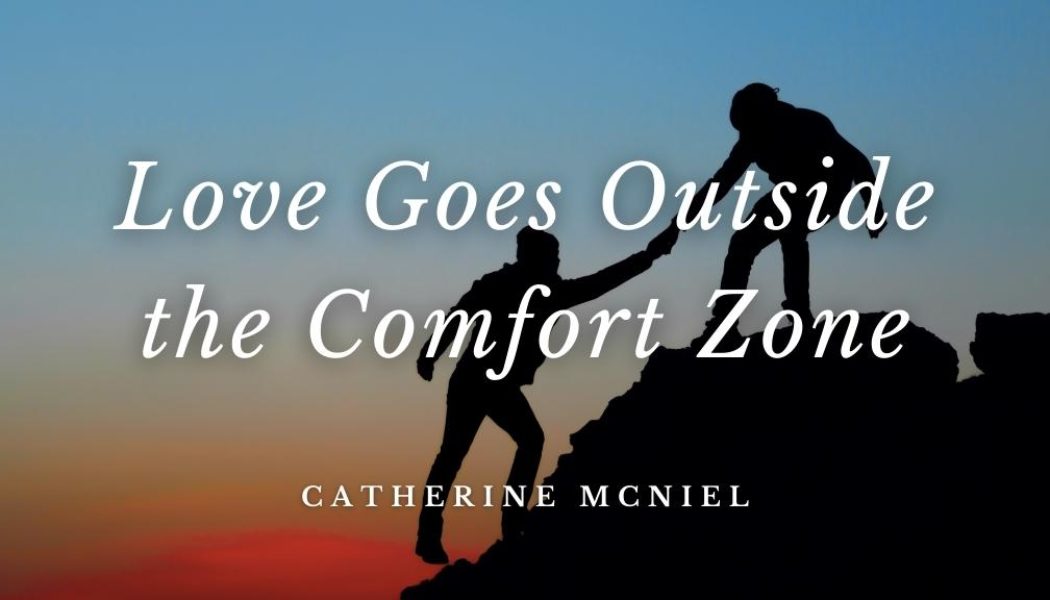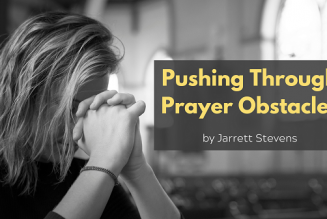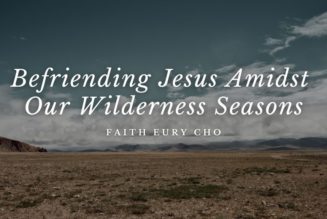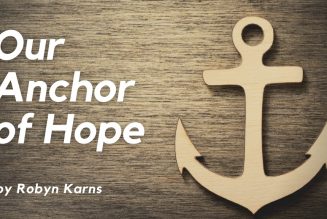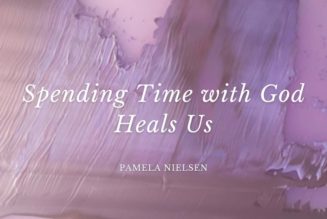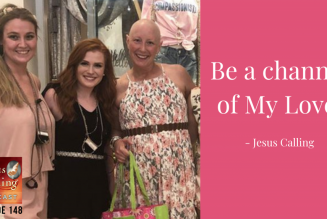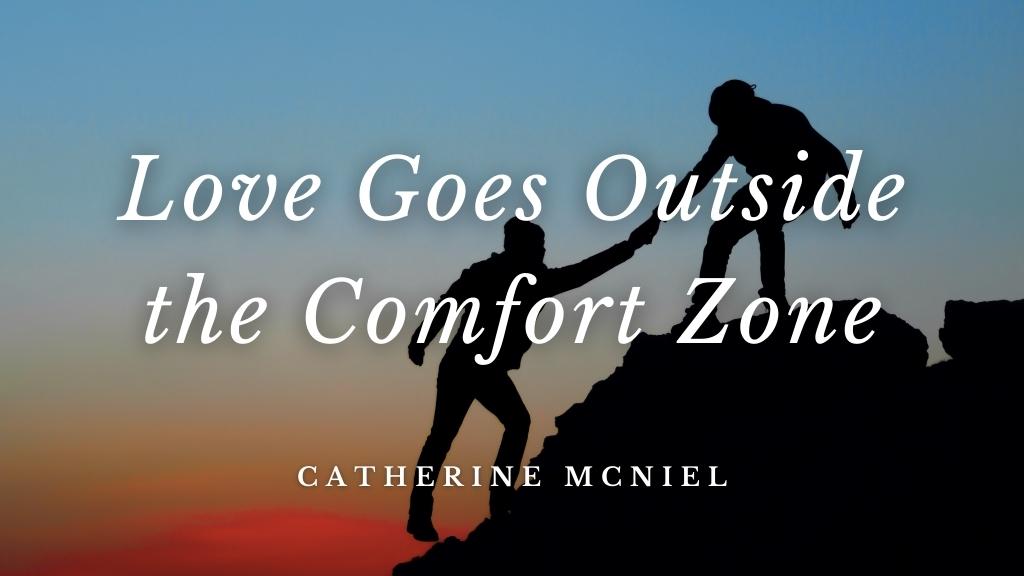
“Let My Love flow through you to others—in both your words and your actions.”
Jesus Always, May 22
On a very (very) hot Sunday morning, my family was driving to church when we saw a car stopped in the center of the road.
There was plenty of room to nudge around it and keep going as plenty of vehicles did, but my husband pulled our minivan behind the stalled car and turned the ignition off. Stepping onto the hot pavement, he made his way over to where a man was bent over the open hood.
With our engine (and therefore, air conditioning) turned off, our van became an instant sauna. I noticed the rest of the stalled car’s occupants standing nearby in the shaded grass of the ditch, so I suggested to my children that we join them.
“But Mom!” my child whispered hesitantly. “We don’t know these people!”
Another leaned in and declared, “We’re going to be late for church!”
The same thoughts had crossed my mind. But these concerns was wrestling with other thoughts, and—as my husband worked alongside this stranger to push the car to the side of the road—I shared them with my children.
“You know, Jesus once told a story of a man who needed help along a really dangerous road. The good news is, two people came by who were on their way home from worship, but because the man looked like he might be dead, and because it would make them unclean to touch a dead body after worship . . .”
My children know the story of the Good Samaritan as well as I do. And the parallels weren’t hard to see. But as the (hot) minutes turned into a quarter hour . . . a half hour . . . it became harder to believe it was all worth whatever small good we were doing.
A Motivation Stronger Than Fear
When we read the stories in the Bible, we almost always cast ourselves as the “good guys” in the tale. In the Exodus story, for example, we imagine what it was like to stand against Pharaoh, or how it felt to rush away from slavery and toward a new future and hope. I wonder why we don’t ask if we’re more like Pharaoh, resistant to confrontation, preferring not to hear that what benefits us harms others. Are we afraid to imagine ourselves as the Egyptian people, technically uninvolved yet indirectly benefiting from their neighbors’ oppression?
In the Good Samaritan story, we remember when we’ve been in dire need, or a moment we were called upon to be the hero.
But there have also been times we’ve put our ideas about living a life of faith—keeping our distance from “sinful” people or being “good” Christians—before actually doing the things Jesus asked us to do: love—not fear—our neighbors, strangers, and even enemies. We don’t often ask ourselves how fear motivates our decisions and our definitions.
Over and over again, God tells us to “Fear not!” and invites us to a love that conquers fear, a love that overcomes evil, a life spent pouring ourselves out for anyone in need—even if it costs us. God’s love is one that compels us to get our hands dirty in relationships with people we’re tempted to be suspicious of or look down upon. Even when this means going far outside our comfort zones.
I wonder if we’ve put aside Jesus’ teaching and adopted a different standard for “good Christians,” one that lets us shelter together and avoid going out into the world.
As we chatted with this family of strangers on that hot day, I had plenty of time to consider how many of our “good” choices and “Christian” ways are actually smokescreens for fear, moving us away from the people God has invited us to love, away from the work God has asked us to do in the world, toward a place where our choices aren’t confronted or threatened. What good is being on time for church if we’re too afraid of our neighbors—or of inconvenience—to act like the hands and feet of Jesus after we leave?
We didn’t make it to church at all that day. But as my husband and this stranger worked on the car while we waited in the sun, we walked through a full sermon with our bodies, learning more deeply than we do most Sundays.
I’m glad we didn’t rush by on the other side.
About the Author
 Catherine McNiel writes about the creative and redemptive work of God in our real, ordinary lives. She is the author of Fearing Bravely: Risking Love for Our Neighbors, Strangers, and Enemies; Long Days of Small Things: Motherhood as a Spiritual Discipline; and All Shall Be Well: Awakening to God’s Presence in His Messy, Abundant World. Catherine studies theology while caring for three kids, two jobs, and one enormous garden. Visit Catherine on Facebook, Twitter, and Instagram.
Catherine McNiel writes about the creative and redemptive work of God in our real, ordinary lives. She is the author of Fearing Bravely: Risking Love for Our Neighbors, Strangers, and Enemies; Long Days of Small Things: Motherhood as a Spiritual Discipline; and All Shall Be Well: Awakening to God’s Presence in His Messy, Abundant World. Catherine studies theology while caring for three kids, two jobs, and one enormous garden. Visit Catherine on Facebook, Twitter, and Instagram.
Join Our Telegram Group : Salvation & Prosperity
